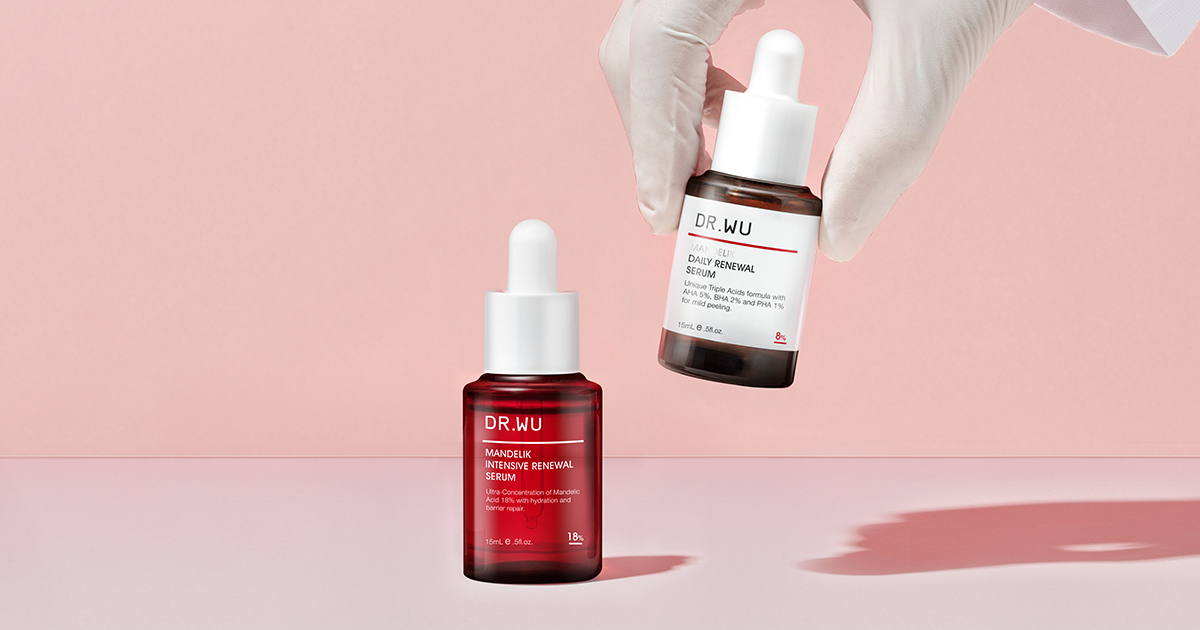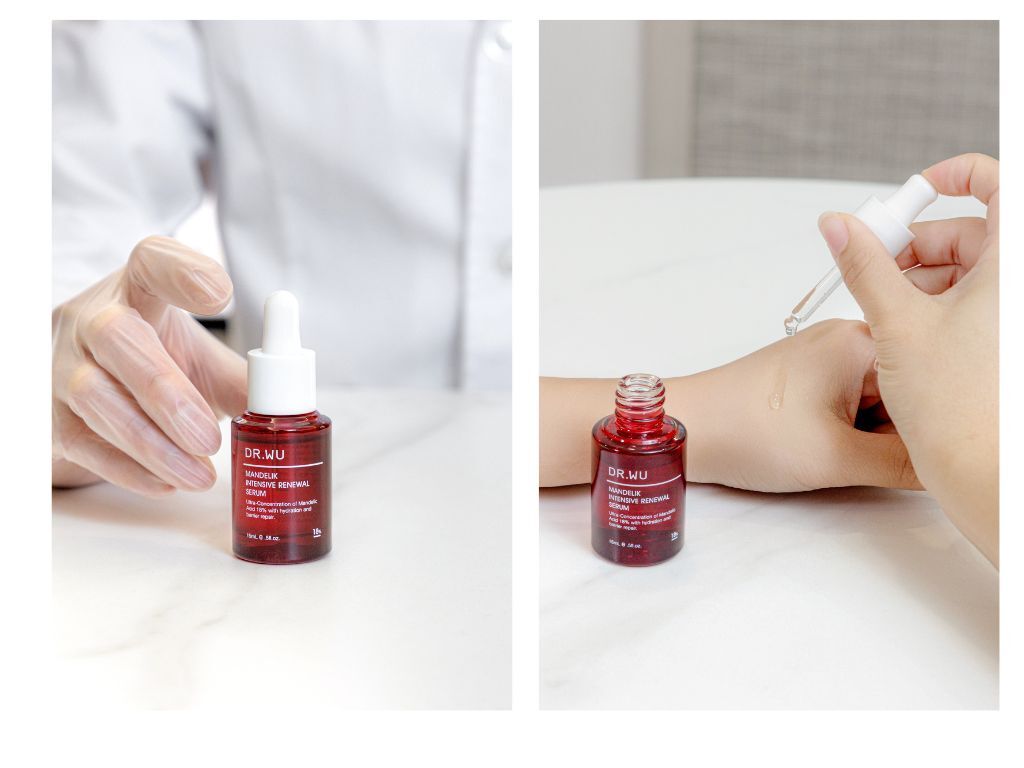Why do dermatologists prefer mandelic acid for chemical Peels?
There’s a wide variety of exfoliating acids available today, including glycolic acid, salicylic acid, and retinoic acid. While effective, these ingredients can be harsh, often leading to dryness and sensitivity—especially for delicate skin.
In comparison, mandelic acid—our oil-soluble AHA with a uniquely large molecular structure—gently exfoliates dead skin cells, penetrates deep into the pores to dissolve excess sebum, and effectively improves pores, blackheads, acne, post-acne marks, and dullness. Thanks to its larger molecular size, it absorbs more slowly, minimizing irritation and making it suitable for all skin types. According to Dr. Jing-Long Cheng, mandelic acid isn’t just widely used in professional peel treatments—it’s also his top choice for daily skincare, proving that gentle, effective exfoliation can be part of a healthy skin routine.








